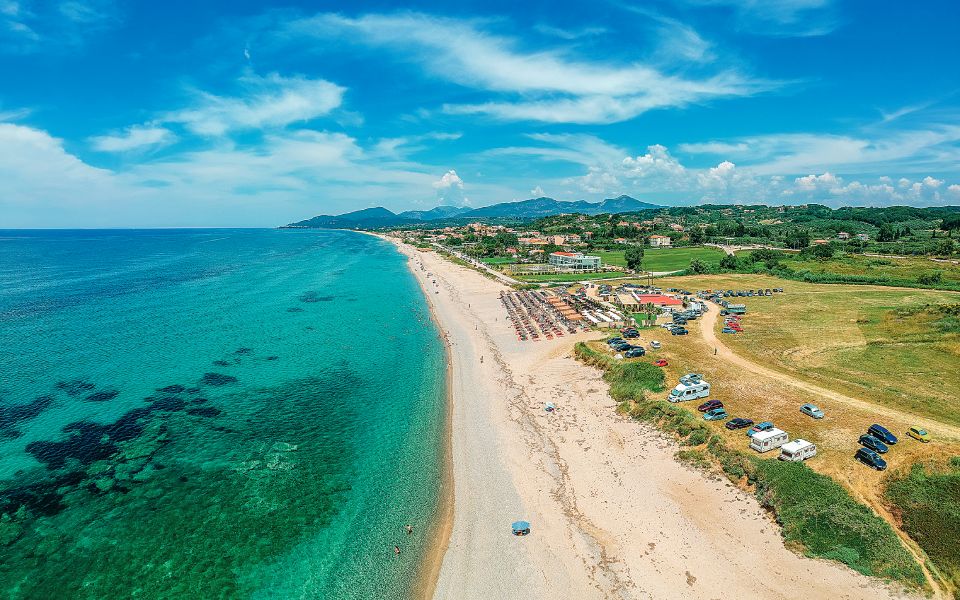Island vs Mainland Cuisine: A Dialogue of Sea...
From the salt-sprayed islands to the...

Huge Monolithi Beach is ideal for social distancing.
© Shutterstock
This summer, the enormous coastal strip (22km long and 80m wide in spots) that is Monolithi Beach a short distance from Preveza, went viral – because the European Best Destinations organization, a member of the EDEN Network, declared it the safest beach in Europe, citing the proximity of an airport and three local hospitals, as well as the scale of the beach itself, as factors in safeguarding swimmers.
If you head north out of Preveza towards Parga, you’ll come across the larger beaches in this region: Monolithi, Vrahos, and Loutsa, all featuring fine sand and crystalline waters.
On my trips to Parga, I usually stop at the small harbor of Lygia, where the small fishing boats come to unload the day’s catch. The taverna Skaloma is here, and it serves fresh seafood.
Preveza stands right at the spot where the Ionian Sea joins the Ambracian Gulf (otherwise known as the Gulf of Actium). The city’s location has been one of the major factors in determining its history, which has always been closely linked with shipping and with commercial fishing.
Whether through open sea fishing, lagoon aquafarming – a form of pisciculture that uses special installations to allow fish to enter the lagoon but block their way out, or through more traditional commercial fish farming, the city is constantly provisioned with fresh seafood of every kind: sole, red mullet, anchovies, gilt-head bream, flathead grey mullets, and even eels! However, it’s actually the humble sardine for which Preveza is renowned. Inside the city itself, I like to go to Treli Garida (“Crazy Shrimp”), for local shrimp from the Ambracian Gulf, and for tasty squid, steamed mussels and grilled sardines.
In addition to my standard stroll along the sea port of Preveza, where I look at all the vessels anchored in the marina, I always enjoy a drive around the Ambracian Gulf as well. Koronesia, a small village almost halfway along the gulf, has a panoramic view over the entire lagoon, its rush-filled marshlands, and the gulf’s island chains.
I pay a visit to the taverna Myrtaria (or Patentas, as it is known locally), for smoked eel grilled on a brick slab, local shrimp straight from the gulf’s waters, salted pilchards, and butterflied flathead grey mullets, cooked using the “petali” method (the fish is sliced open, laid flat, salted, and left to dry in the sun).
From the salt-sprayed islands to the...
Discover hidden beaches, authentic tavernas, ancient...